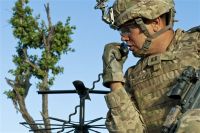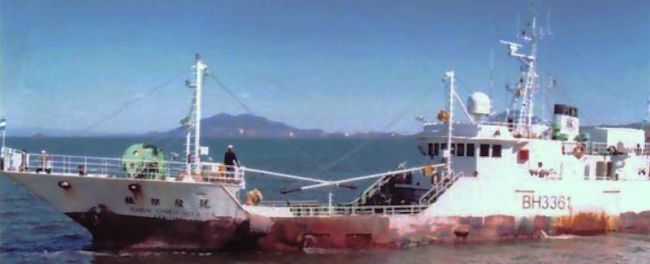GAYAN DISTRICT, Afghanistan, May 20, 2011 — “Dog” Company’s mission, here near the Pakistan border, is simple: “climb mountains and kill bad guys.”
Army Capt. Edwin Churchill commands the company, part of the 2nd Battalion, 506th Infantry Regiment’s fighting force for the 4th Brigade, 101st Airborne Division.
“You’ve got to be willing to own the high grounds and stay out overnight,” Churchill said. “You need to go where you know [enemy forces] are, and have the confidence that you’ll push them out of the area.”
From Forward Operating Base Tillman here in the Paktika province, Churchill’s troops literally went to the high ground recently. The company spent five days, from May 14-to 18, marching into the mountains of the Gayan district, carrying tons of weapons and equipment, aided by Afghan army and border police partners and a small Army engineer detachment. Their mission: slow the flow of enemy fighters from the border region into the rest of Afghanistan.
On May 14 – a Saturday — the company’s first and third platoons set up positions on three hilltops, with the first platoon split between two positions. The soldiers flew in by Chinook, then marched and climbed to their assigned positions before dawn.
Churchill said the overwatch positions covered an area roughly seven by three kilometers, centered on a road that provides an illegal crossing into Pakistan.
Local Afghans use the road to cross into Pakistan, where the nearest bazaar is located. But the road also provides a route for insurgents to move men and equipment into Afghanistan without passing through a checkpoint, Churchill said.
“We’ve been hitting that area hard, and it’s created quite a fight from [the enemy.] They very dearly want to hold on to that crossing point,” he said.
A primary objective of the operation was to disable that road, he added.
Engineers accomplished that Monday morning, setting off a series of explosive charges that left two craters in the road. One is 22 feet long by 8 feet deep, and the explosion rolled a 1,000-pound boulder into the pit, he said. The second crater is 15 feet wide and 6 feet deep.
“The enemy can bring heavy equipment out to try to fix it, but we’d instantly react … and find out who it was,” Churchill said.
Legitimate residents will detour through the traffic control checkpoint near FOB Tillman, and soldiers will be on the lookout for people who are suddenly deviating from their normal travel patterns and those who are using illegal crossings, he said.
In the wake of the explosions in the road, insurgents attacked third platoon’s position early in the afternoon, and sustained the assault into Tuesday morning. [See related article “Infantry Troops Hold Border Hilltop.”]
Later that day, the company’s other two elements converged on the third platoon’s position, and were in place the following day when the enemy attacked again.
“It was four to five different positions, machine gun and small arms fire coming from the same ridgeline,” Churchill said. “The insurgents initiated and … we had at that point four machine guns on the line plus five different squad automatic weapons [and] two 60mm mortar tubes.”
Within two minutes, Dog Company had fire superiority. The entire engagement lasted about 20 minutes.
“We had just started to break down … and get ready to leave,” Churchill said. “We called for [air weapons] and immediate suppression from the 105 howitzers at FOB Tillman. We have an unbelievably good gun crew here, and we’re very comfortable firing them ‘danger close.’ ”
The combination of indirect and direct fire quickly drove the enemy away, he said.
“We know they broke contact back into Pakistan,” he said. “At that point we sat at stand-to for a couple of hours waiting to see if they wanted to come back.”
Churchill said an estimated two squads’ worth of enemy fighters were “removed from the battlefield” during the two engagements.
His soldiers’ performance during the mission was highly professional, Churchill said. He noted that most of the company’s men have been involved in “more firefights than they can count” during their deployment, and have walked at least 700 miles of patrol through the mountainous border region.
“Every infantryman finds that point in his career … something like the other day, when those rounds were everywhere,” he said. “How did they not find anything? Nobody [from Dog Company] got hit.”
Source:
U.S. Department of Defense
Office of the Assistant Secretary of Defense (Public Affairs)

 von
von 
